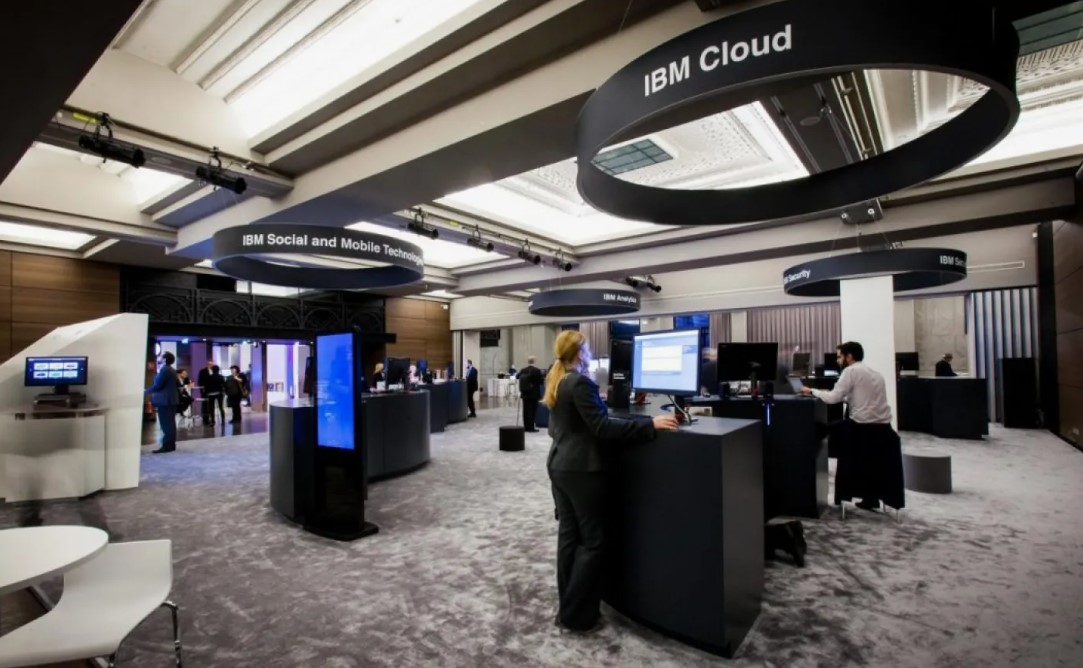International Business Machines Corporation (IBM), commonly known as “Big Blue,” is an American multinational corporation headquartered in Armonk, New York. Renowned as one of the world’s largest manufacturers and suppliers of hardware and software, IBM also provides a vast array of IT services and consulting. The nickname “Big Blue” is attributed to several theories: it could stem from the blue-colored mainframes of the 1950s and 1960s, the company’s blue logo, or the former dress code that required employees to wear blue suits and shirts. As a leader in IT, IBM’s services are comparable to those offered by an information security company in Dubai, ensuring top-tier protection and innovation in the tech industry.
History and Development of IBM
IBM traces its roots back to the Tabulating Machine Company, founded by Herman Hollerith in 1896. This company merged with two others to form the Computing-Tabulating-Recording Company (CTR) in 1911. In 1924, CTR was renamed International Business Machines Corporation (IBM).
The Early Years (1896-1930s)
During its early years, IBM focused on developing and selling tabulating machines, which were used for accounting and record-keeping. These machines played a significant role in automating data processing tasks. In the 1930s, IBM introduced the IBM 401, a tabulating machine that played a crucial role in the U.S. Social Security Act implementation.
Mid-Century Expansion (1940s-1960s)
The 1950s and 1960s saw IBM dominating the computer industry with its blue-colored mainframes, such as the IBM 700 series. In 1964, IBM launched the System/360, a revolutionary family of computers that set industry standards. This period marked IBM’s transition from a tabulating machine company to a computer technology leader.
Personal Computing Era (1980s-1990s)
The 1980s marked IBM’s foray into personal computing with the IBM PC, setting the standard for PC architecture. The IBM PC, introduced in 1981, became a benchmark in the personal computing industry, influencing future designs and operating systems.
However, the 1990s brought challenges as IBM faced intense competition and financial difficulties. The company underwent a significant transformation under CEO Louis V. Gerstner Jr., shifting focus towards services and software. This strategic pivot allowed IBM to adapt to the changing technological landscape.

The Modern Era (2000s-Present)
In the 2000s, IBM continued to innovate and expand its services. The company divested its personal computer business to Lenovo in 2005 and focused on high-margin areas such as software, cloud computing, and artificial intelligence. In 2011, IBM’s Watson supercomputer gained fame by winning the quiz show Jeopardy!, showcasing the potential of AI technology.
IBM Divisions
IBM Software (41% of Revenue)
IBM Software is a major division focused on developing software solutions. This includes enterprise software for data management, analytics, and cybersecurity. Key products include IBM Watson, a powerful AI platform, and IBM Cloud Pak solutions.
IBM Consulting (32% of Revenue)
IBM Consulting offers modernization services for information systems. This division helps organizations streamline operations, implement cutting-edge technologies, and enhance efficiency. Services range from strategic consulting to system integration and managed services.
IBM Infrastructure (25% of Revenue)
IBM Infrastructure specializes in creating and maintaining cloud computing infrastructure. This includes hybrid cloud solutions, data centers, and IT infrastructure management. IBM Cloud is a prominent offering, providing scalable and secure cloud services.
Financing (1% of Revenue)
IBM’s Financing division provides leasing and financing options for purchasing equipment. This service helps businesses acquire the latest technology without significant upfront costs, facilitating easier access to IBM’s products.
IBM Research
IBM Research is dedicated to innovation in artificial intelligence and information technology. The division has made significant contributions to various fields, including quantum computing, AI, and blockchain. IBM Research has produced six Nobel Prize winners, underscoring its impact on scientific advancements.
IBM’s Areas of Activity
Software
IBM develops a wide range of software solutions, including AI, analytics, cybersecurity, and cloud computing. IBM Watson, the company’s AI platform, is used across various industries for data analysis, natural language processing, and decision-making support.
Computers and Devices
While IBM has moved away from manufacturing personal computers, it remains a key player in developing enterprise hardware, such as servers, mainframes, and storage systems. The IBM Z series mainframes are renowned for their reliability and processing power.

Scientific and Technical Developments
IBM is at the forefront of scientific research and innovation. The company invests heavily in R&D, with IBM Research leading advancements in quantum computing, AI, and other emerging technologies. IBM’s contributions to the scientific community include breakthroughs in materials science and computational biology.
International Activities
IBM operates in 175 countries, offering a global reach with localized services. The company has a significant presence in regions like the UAE, where it provides tailored solutions to meet local business needs. IBM’s international operations ensure that it remains a key player in the global IT landscape.
IBM Today
Today, IBM stands as a leader in the IT industry, known for its innovation and commitment to scientific research. The company actively funds R&D, with six Nobel Prize winners among its staff. IBM engineers have a vast number of unique developments to their credit. Operating in 175 countries, including the UAE, IBM continues to shape the future of technology.
Key Innovations and Achievements
Watson AI
IBM’s Watson AI platform has revolutionized data analytics and machine learning. Watson is utilized in various sectors, including healthcare, finance, and customer service, to derive insights from large datasets and improve decision-making processes.
Quantum Computing
IBM is a pioneer in quantum computing, developing the IBM Q System One, the world’s first integrated quantum computing system. Quantum computing holds the potential to solve complex problems that are beyond the capabilities of classical computers.
Blockchain Technology
IBM has been instrumental in the development and adoption of blockchain technology. IBM Blockchain provides secure, scalable solutions for various industries, including supply chain management, finance, and healthcare.
Contributions to Science and Technology
IBM’s contributions to science and technology are extensive. The company has been at the forefront of many groundbreaking innovations, including the development of the first hard disk drive, the creation of the relational database, and advancements in semiconductor technology.
Notable Achievements
– First Hard Disk Drive: IBM introduced the IBM 350 in 1956, revolutionizing data storage with its magnetic disk storage system.
– Relational Database: IBM researchers developed the concept of the relational database, leading to the creation of SQL and transforming data management.
– Semiconductor Technology: IBM has made significant contributions to semiconductor technology, including the development of copper-based chip manufacturing processes.
IBM’s Global Impact
IBM’s global presence and influence are vast. The company operates in 175 countries, providing technology solutions and services to a diverse range of industries. IBM’s international activities include collaborations with governments, educational institutions, and businesses to drive innovation and technological advancement.
Presence in the UAE
In the UAE, IBM offers tailored solutions to meet the unique needs of the region. This includes cloud computing, AI, and data analytics services that support the UAE’s vision of becoming a global hub for innovation and technology.
Conclusion
IBM’s legacy of innovation and transformation demonstrates its resilience and adaptability in a rapidly evolving industry. As a pioneer in hardware, software, and IT services, IBM remains a crucial player in driving technological advancements and supporting global business needs.
For nearly a century, IBM has set the standard for excellence in the technology sector, earning its place as a “blue giant” in the industry. As it continues to innovate and expand its services, IBM’s influence on the world of technology is sure to endure for years to come.

Here you’ll find thoughts on lifestyle, digital work, side-projects, and staying grounded in a fast-paced city.

